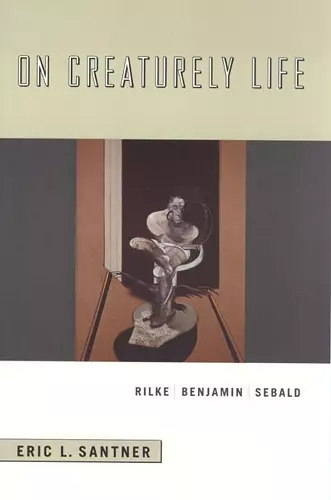On Creaturely Life
Rilke, Benjamin, Sebald
Format:Paperback
Publisher:The University of Chicago Press
Published:30th Jun '06
Should be back in stock very soon

In his "Duino Elegies", Rainer Maria Rilke suggests that animals enjoy direct access to a realm of being - the open - concealed from humans by the workings of consciousness and self-consciousness. In his own reading of Rilke, Martin Heidegger reclaims the open as the proper domain of human existence, but suggests that human life remains haunted by vestiges of an animal-like relation to its surroundings. Walter Benjamin, in turn, was to show that such vestiges - what Eric Santner calls the creaturely - have a biopolitical aspect: they are linked to the processes that inscribe life in the realm of power and authority. Santner traces this theme of creaturely life from its poetic and philosophical beginnings in the first half of the twentieth century to the writings of the enigmatic German novelist W. G. Sebald. Sebald's entire oeuvre, Santner argues, can be seen as an archive of creaturely life. For Sebald, the work on such an archive was inseparable from his understanding of what it means to engage ethically with another person's history and pain, an engagement that transforms us from indifferent individuals into neighbors.
"Eric Santner's On Creaturely Life deserves a tribute, not a blurb. His intricate series of interlocutions between Rilke, Benjamin, Heidegger, Agamben, and Sebald make a kind of chamber music, rich with intellectual intuition and ethical clarity. Santner transforms and transposes the great themes of human and historical mediation in a range of keys - poetic, political, textual, juridical." - Homi K. Bhabha, Harvard University"
ISBN: 9780226735030
Dimensions: 22mm x 14mm x 2mm
Weight: 312g
216 pages